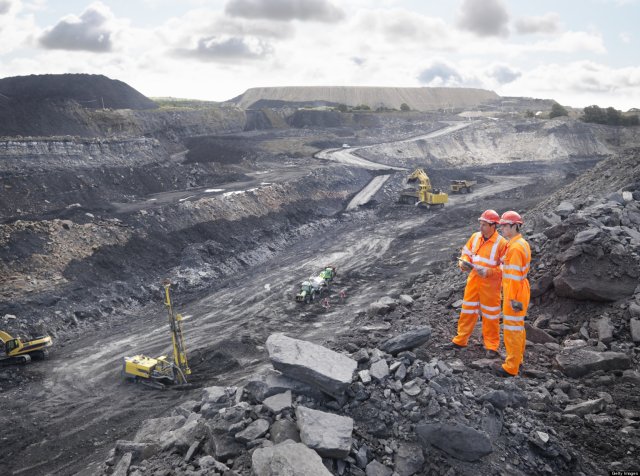
Most of Australia’s fossil fuel reserves — coal, oil and gas — must stay in the ground if we are to keep the climate below a 2°C rise and avoid catastrophic climate change, a new report by the Australian Climate Commission says.
The report, The critical decade 2013: Climate change science, risks and responses released on June 15, said “the best chance for staying below the 2°C limit requires global emissions to begin declining as soon as possible and by 2020 at the latest.”
By 2050, carbon emissions need to be reduced to close to zero. The world cannot exceed a carbon budget of 1000 billion tonnes.
However, since 2000 we have already used up 40% of this budget, meaning we need to make deep cuts to emissions over the next 37 years to stay within the last 60%.
Unsurprisingly, the damning report was panned by industry and the coal lobby. The Australian Minerals Council said the report “crosses the line from scientific analysis into taxpayer-funded environmental activism.”
The World Coal Association said the report “can be said to have conducted the equivalent of a cost-benefit analysis without looking at the benefit side.”
The people who benefit from mining fossil fuels are the minority, who own and profit from mining projects, such as Australian billionaires Gina Rinehart and Clive Palmer.
They own several of the nine huge coalmines proposed in Queensland’s Galilee basin. If developed, they would double the amount of coal Australia exports and triple Australia’s carbon emissions.
But the extensive cost of the fossil fuel industry is borne by the rest of us who suffer the most from the impact of climate change and the devastating floods, bushfires and extreme heatwaves it brings.
Denying businesspeople the right to invest in lucrative projects goes against the nature of the “free-market”, an ideology that is supported by the two big parties.
But allowing owners of coalmines to make the decision on behalf of society about what energy sources society uses is not only undemocratic, the consequences for everyone will be extreme. The report says: “Burning all fossil fuel reserves would lead to unprecedented changes in climate so severe that they will challenge the existence of our society as we know it today.”
If the Australian government took climate change seriously and followed the advice in this report, it would mean standing up to the power and wealth of the mining industry.
It would mean saying no to the coal seam gas and shale gas projects that are being developed throughout the country.
There are no loopholes that can allow fossil fuels to be mined and burnt and then compensated for through carbon “offsetting”, such as tree planting schemes.
The report says the process of offsetting carbon emissions “can actually be counterproductive by allowing the continual addition of new carbon into the active cycle. The climate can only be stabilised if the addition of new carbon from fossil sources is eliminated”.
Phasing out fossil fuels will not disrupt Australia’s energy supply. Beyond Zero Emissions says it is possible to establish a renewable energy industry within 10 years that will provide reliable power from a mixture of wind and solar.
This renewable energy industry will also provide more jobs than the fossil fuel industry.
The Climate Commission was established to “provide all Australians with an independent and reliable source of information about the science of climate change, the international action being taken to reduce greenhouse gas emissions, and the economics of a carbon price.”
Opposition leader Tony Abbott has promised to abolish the commission if elected.
The report reminds us that: “Climate change is much more than just an environmental problem. It is an economic, technological and social challenge that requires a fundamental transformation of our societies, in particular our means of generating energy, if we are to stabilise the climate at a level that is safe for future generations.”